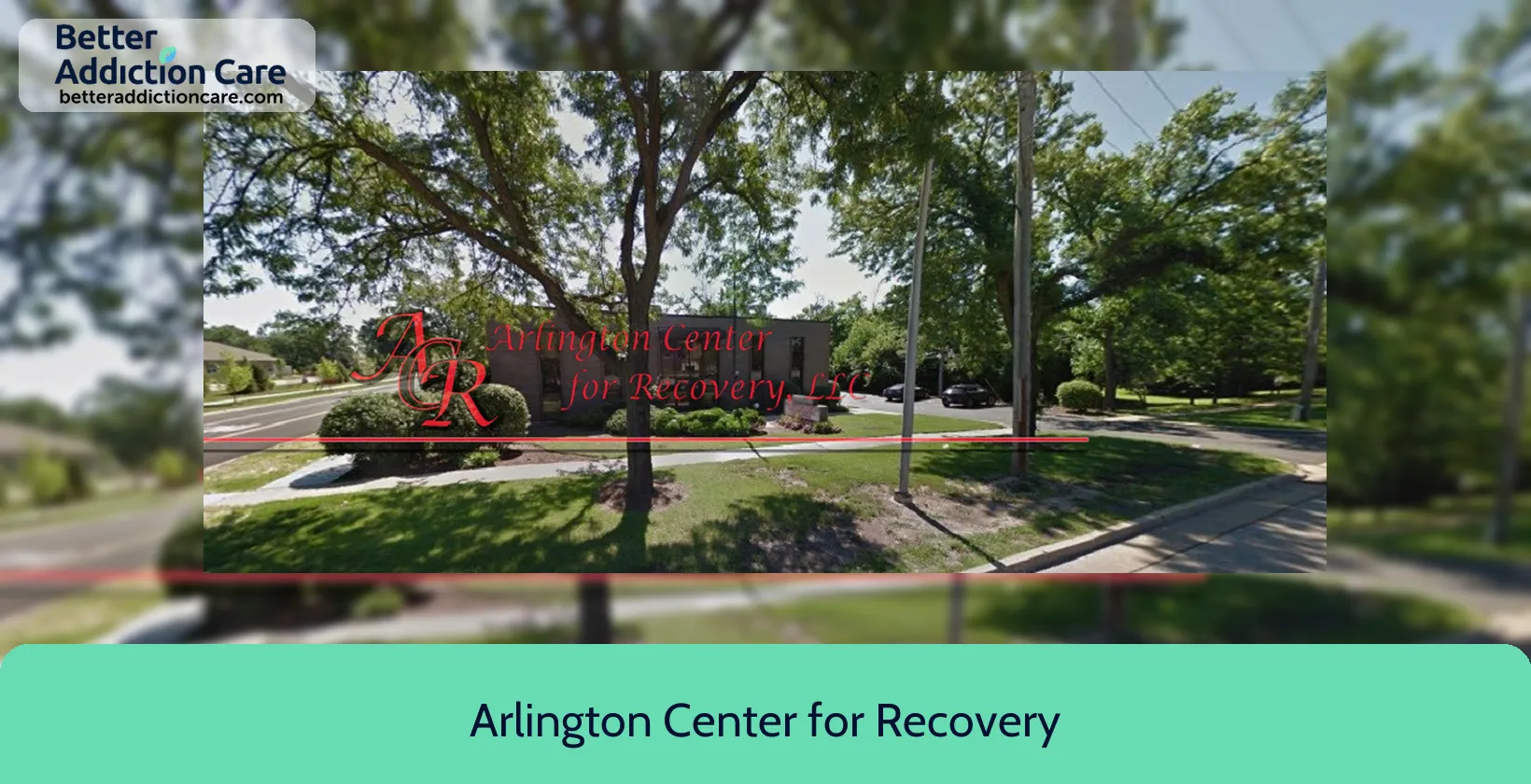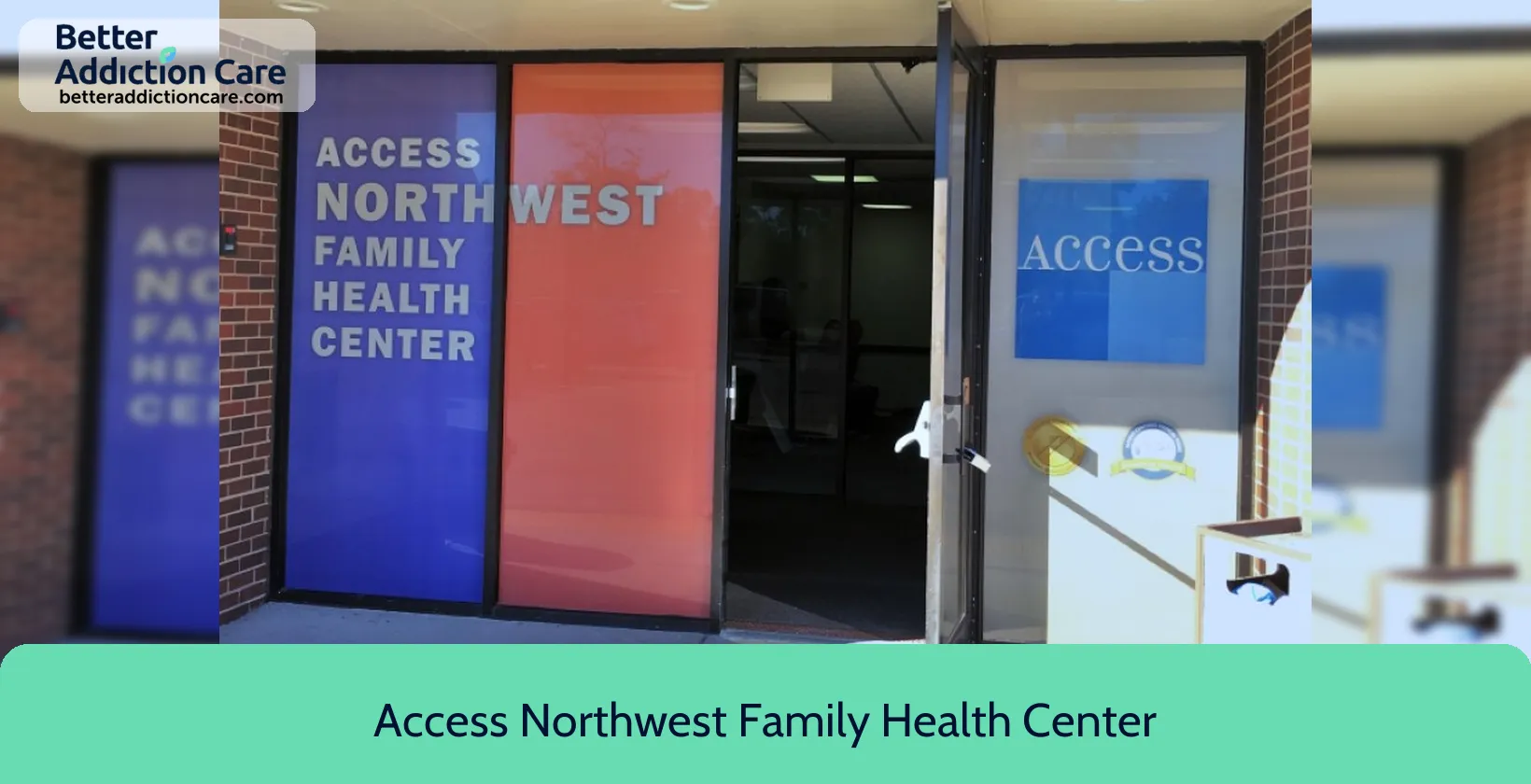Access Northwest Family Health Center
Overview
Access Northwest Family Health Center is an accredited substance abuse treatment center that provides outpatient treatment for men and women between 18 and 65+ years of age. As part of their special programs, Access Northwest Family Health Center treats clients who have experienced trauma. To help patients achieve sobriety, Access Northwest Family Health Center provides intake assessments. Afterward, patients receive cognitive behavioral therapy, telemedicine/telehealth therapy, and substance use disorder counseling during treatment. Access Northwest Family Health Center is located in Arlington Heights, Illinois, providing treatment for people in Cook County, accepting cash or self-payment, medicaid, and medicare.
Access Northwest Family Health Center at a Glance
Payment Options
- Cash or self-payment
- Medicaid
- Medicare
- Private health insurance
Assessments
- Screening for tobacco use
- Comprehensive mental health assessment
- Comprehensive substance use assessment
- Interim services for clients
- Outreach to persons in the community
Age Groups
- Young adults
- Adults
- Seniors
Ancillary Services
- Case management service
- Integrated primary care services
- Early intervention for HIV
Highlights About Access Northwest Family Health Center
7.19/10
With an overall rating of 7.19/10, this facility has following balanced range of services. Alcohol Rehabilitation: 8.00/10, Drug Rehab and Detox: 7.54/10, Insurance and Payments: 6.00/10, Treatment Options: 7.21/10.-
Alcohol Rehabilitation 8.00
-
Drug Rehab and Detox 7.54
-
Treatment Options 7.21
-
Insurance and Payments 6.00
Accreditations
Federally Qualified Health Center:
Federally Qualified Health Center (FQHC) accreditation is a process of evaluation and recognition by the federal government for community health centers that provide comprehensive and accessible healthcare services to underserved populations. FQHC accreditation is essential for centers to receive federal funding and to ensure that they meet standards for quality, patient-centered care.
Treatment At Access Northwest Family Health Center
Treatment Conditions
- Mental health treatment
- Substance use treatment
- Co-occurring Disorders
Care Levels
- Outpatient
- Outpatient methadone/buprenorphine or naltrexone treatment
- Aftercare
Treatment Modalities
- Cognitive behavioral therapy
- Telemedicine/telehealth therapy
- Substance use disorder counseling
- Trauma-related counseling
- Smoking/vaping/tobacco cessation counseling
Ancillary Services
Languages
- Spanish
Additional Services
- Pharmacotherapies administered during treatment
- Naloxone and overdose education
- Drug or alcohol urine screening
Special Programs
- Clients who have experienced trauma
Get Help Now
Common Questions About Access Northwest Family Health Center
Contact Information
Other Facilities in Arlington Heights

6.97
DISCLAIMER: The facility name, logo and brand are the property and registered trademarks of Arlington Center for Recovery, and are being used for identification and informational purposes only. Use of these names, logos and brands shall not imply endorsement. BetterAddictionCare.com is not affiliated with or sponsored by Arlington Center for Recovery.

